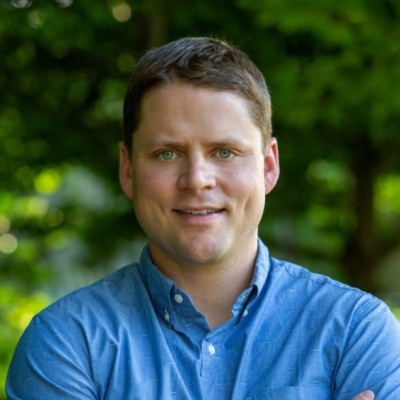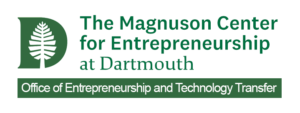Ahead of IPO, A Ginkgo Bioworks Fireside Chat
This week, Ginkgo Bioworks will go public with a $17 billion valuation, in one of the biggest SPAC deals to date. The company’s Chief Commercial Officer, Matt McKnight ’05, talked at DEF about the company’s journey and his call toward work that makes a difference.

On Friday, Matt McKnight ’05 will be on Wall Street, watching the company he works for go public under the ticker symbol DNA. It’s fitting moniker for Ginkgo Bioworks, a synthetic biology company that provides a platform for programming cells. The possibilities for that technology are virtually endless, said McKnight, who has been the Chief Commercial Officer for the company since 2018.
“Imagine the capabilities when we change biology from experimental to programmable,” he said during a fireside chat with Errik Anderson T’07, CEO and Founder at Alloy Therapeutics, Inc.
The vast potential is the reason why Ginkgo Bioworks has drawn one of the largest SPAC deals to date, with a valuation of more than $17 billion.
An unlikely biotech innovator
McKnight started his Dartmouth career in September 2001. On the eve of the 20th anniversary of the September 11 terrorist attacks, McKnight reflected on how being in college at that particular moment shaped him.
“From that point on, the past 20 years have been an interesting time in human history,” he said.
McKnight was a history major and government minor. During his summer he went to Officer Candidate School with the Marine Corps. When he graduated in 2005, he had a choice: become a consultant or deploy to Iraq. McKnight felt called to serve his country.
“There was an idealism here,” he said of that decision. “I went to Exeter. I went to Dartmouth. I had been given all of the things that this country could give to people.”
Now, it was his time to give back.
Learn to learn
McKnight decommissioned from the Marine Corps in 2009. He received a master’s in public policy from The Harvard Kennedy School and later an MBA from Harvard Business School. After working as a consultant for seven years, Ginkgo Bioworks caught McKnight’s interest around 2015. Through a mutual connection, he met the company’s co-founders. He knew they were looking for a Chief Commercial Officer, but also that he would have to prove himself.
“This is a company built with a lot of love and care,” McKnight said. “If I wanted this job, I had to learn everything about synthetic biology.”
To do that, McKnight leaned into his liberal arts education and its focus on life-long learning.
“How do you continue, especially as technology is moving so fast, to leverage the spirit of liberal arts and learn to learn?” he said. “You have to listen a lot; listen to the people who know what they’re talking about.”
Making DNA programming more efficient
Soon, McKnight was able to understand the Ginkgo Bioworks technology. He explains it this way: think of cells as a manufacturing facility. Everything on earth is made from cells.Those cells run a digital code in the form of DNA. If we are able to read and write that DNA code, we can impact what cells manufacture.
Right now, the process of writing code into a cell is very hands-on and artisanal. The Ginkgo Bioworks platform makes it much more efficient, allowing it to be used at scale.
“We’re agnostic to application,” McKnight said. “The platform is meant to make the programming piece more efficient so that apps can be built.”
The Ginkgo Bioworks platform works behind the scenes, enabling innovation in other industries, particularly healthcare, food and agriculture, consumer goods and materials and energy. That means that McKnight and his team collaborate closely with other innovators.
“What could be more exciting than to imagine the places you can use biology, and figuring out how to partner with amazing entrepreneurs, scientists and companies to make it real?” he said.
The untapped resource of synthetic biology
In the coming decades and centuries, synthetic biology could completely change the global economy.
“In the world, in order to have wealth, you have to turn raw products into useful things,” McKnight said. Bio innovation can make that process more accessible and less harmful to the planet.
The prospects for this platform are just getting started, and it’s hard to predict what the future might bring.
“There are certainly things that are on the horizon that are not achievable today,” McKnight said.
Still — especially in light of the pandemic — it’s important to be conscious of the impact of this technology.
“This is a very powerful technology,” he said. “We as humanity have to be very careful. How do we bring biotech in a transparent, safe, inclusive way into the world?”
To do that, all groups have to be present at the table.
For now, McKnight is glad that he is helping to bring synthetic biology to the world.
“I feel incredibly fortunate to be around people who are good human beings, trying to learn and get better every day,” he said. “We’re just getting started here.”

